IU opera performs world premiere 'Anne Frank' at Indiana University's Musical Arts Center

- Oops!Something went wrong.Please try again later.
- Oops!Something went wrong.Please try again later.
- Oops!Something went wrong.Please try again later.
Bloomington is getting the world — yes, world — premiere of the first full-scale opera about Anne Frank based on "The Diary of a Young Girl." Performances will be March 3, 4, 9 and 10 at the Indiana University Musical Arts Center.
Directing is acclaimed Crystal Manich. She believes we should not stop telling stories just because they are difficult to hear. Telling them might make them less apt to be repeated.
Performers will portray Anne Frank, her family, community members and fellow Holocaust prisoners. Pulitzer Prize-winning composer Shulamit Ran created the score, Charles Kondek wrote the libretto, and IU's Arthur Fagen will conduct.
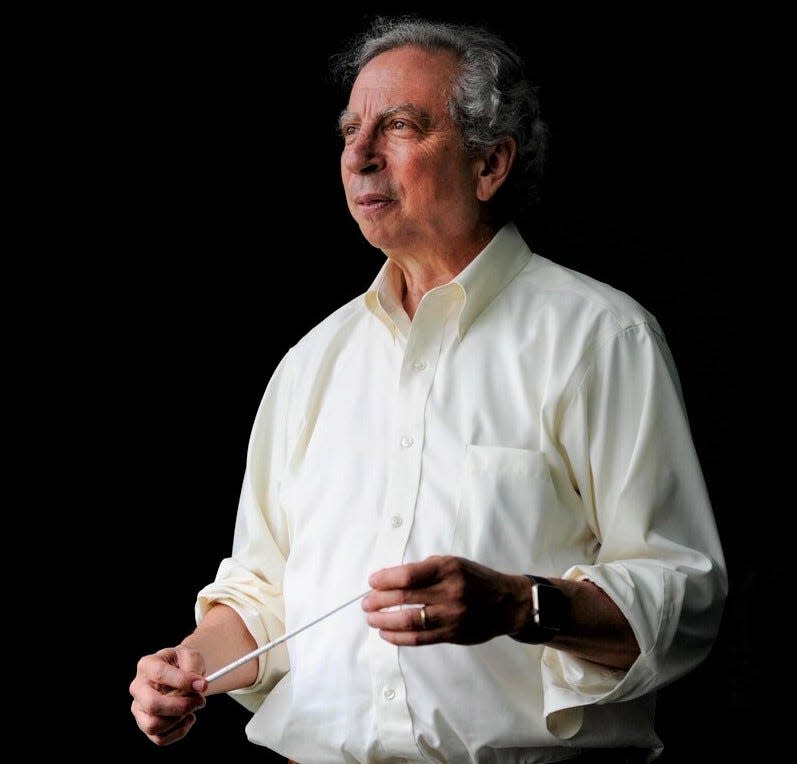
Fagen squeezed through jagged hoops, in fact, to gain permission to do the opera about the young girl who wrote in her diary about what she and her family did for two years, beginning in 1942, while hiding in 450 square feet of space in what she called the "Secret Annex."
Fagen's parents are Oskar Schindler Holocaust survivors, a term for the people who were saved by Schindler, a German Catholic industrialist who had served the Nazi Party before he changed his mind.
Fagen made a point of getting to know Buddy Elias, the decision-maker who determines who can produce an opera about Anne Frank. Elias is the last close member of Frank's family to survive. He worked on the board of trustees and as president of the Anne Frank Fonds, founded in 1963 in Switzerland by Frank's father.
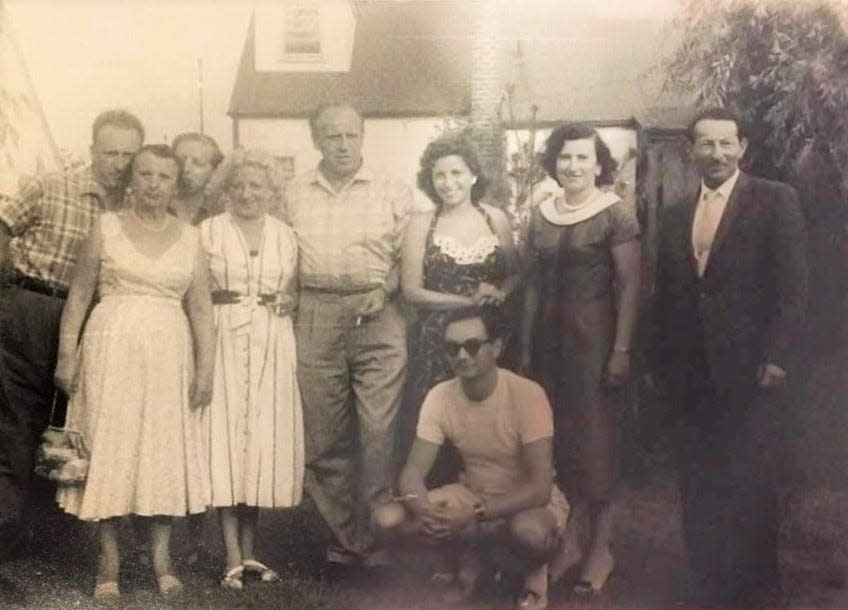
A lucky break for Bloomington
"I think the actual idea to do the opera came from Dennis Hanthorn," Fagen said.
Hanthorn is general director of the Atlanta Opera, which initially planned to produce "Anne Frank." Fagen is music director there. The Atlanta Opera has produced opera for more than four decades, employing distinguished singers, conductors, designers and directors.
Other entertainment options:Temporary, unexpected: 3 'pop-ups' give custom experiences at area locations
Why an opera about Anne Frank — and hope?
"We are telling Anne's story not just through words and music, but also using a turntable to re-create the 'annex,' where these people lived for two years," said director Manich.
Manich is an Emmy-nominated director of stage and film and 2021 winner for Toronto International Women Film Festival's Best First Time Female Filmmaker.
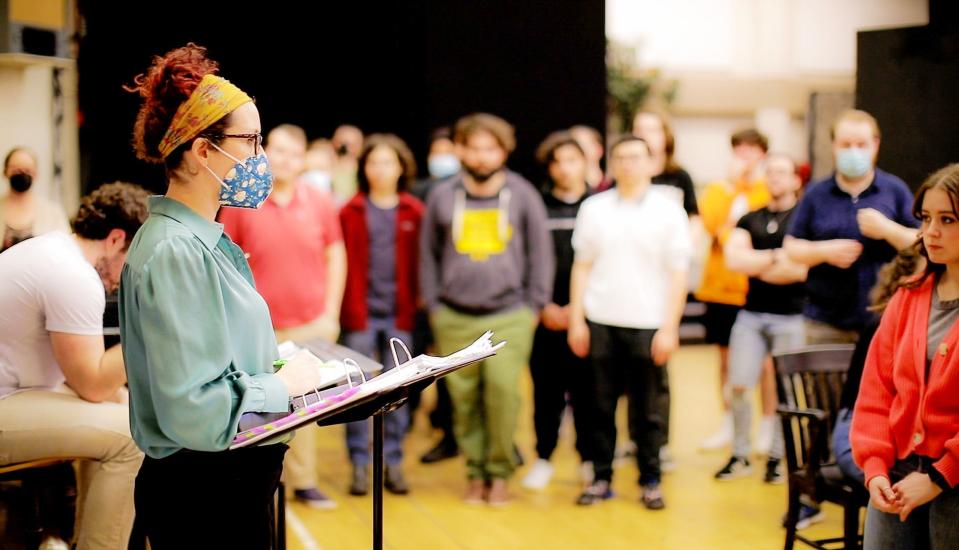
Counterintuitively maybe, the opera provides a glimpse of good things that can happen when people collaborate to fight hate. "Anne's insights about humanity, from her diary, show us that people, somehow, can overcome violence," Manich said.
"Anne’s story is definitely one of hope, even though her life ended tragically. Anne always talks about wanting to have a large effect on the world — she didn’t realize that she was doing exactly that as she wrote."
Audiences will feel as though they are part of the Frank family's world as they watch time move. A chorus of concentration camp prisoners remains onstage throughout.
More:Indiana University student to appear on Jeopardy! reunion tournament
"The entire time that you’re watching the (Frank) family, you see the very clear and present danger that is headed their way."
Watching the characters while knowing what is coming helps the audience see the Holocaust's layers.
"I also want to make sure that people understand that they’re coming to see a theatrical representation of what happened with Anne and her family in that annex for over two years."
Using old photos and concentration camp visits
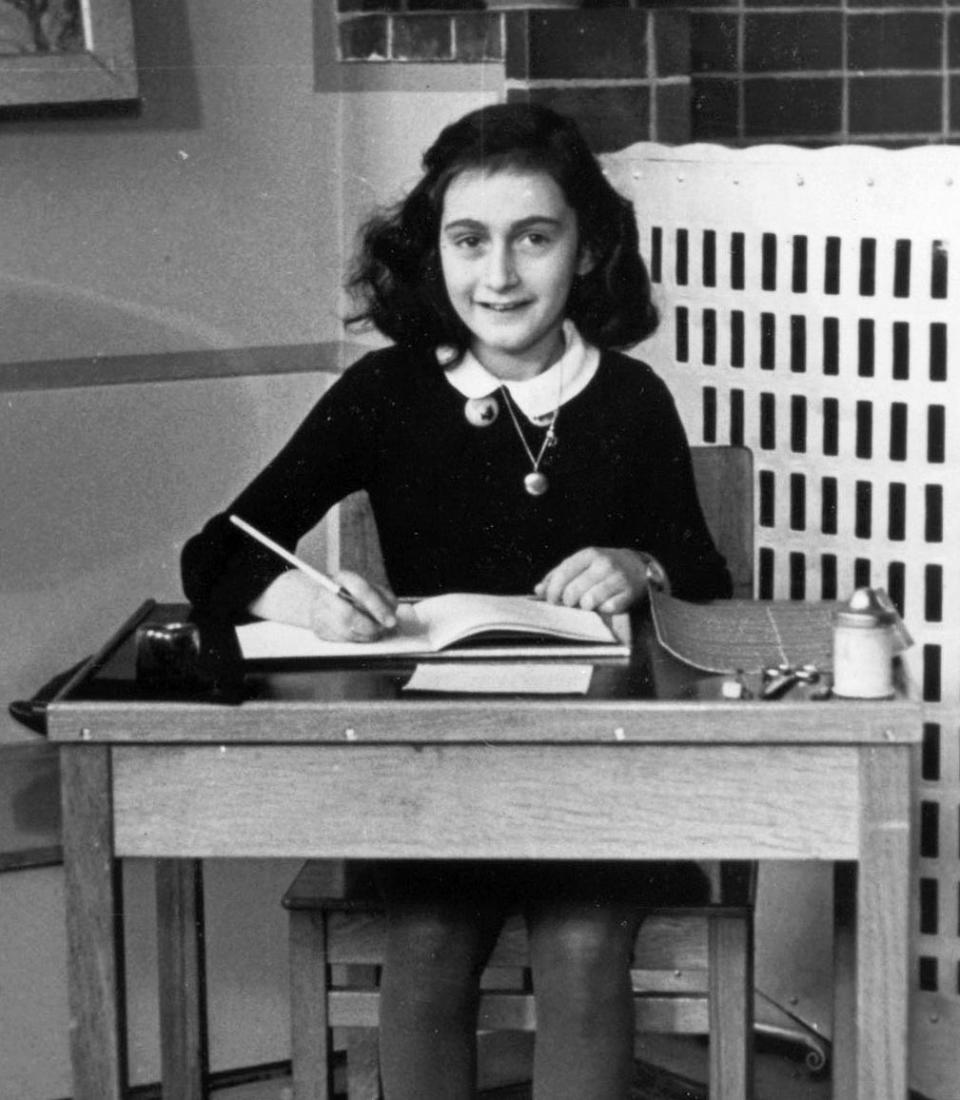
The team referred to photos from the actual time and place both in and outside the annex. In 2016 Manich also visited the annex. In addition, the team used many family photos to inspire costumes and general atmosphere. And, of course, the abundance of visual documentation from the Holocaust itself.
"One of the difficulties of being a director is that you have to face a lot of images in order to (home) in on what is essential to tell a story theatrically," Manich explained.
In addition to Manich's visit to the annex, she toured a concentration camp 20 years ago. "It was June, and it was hot. But as soon as I entered the camp, and as long as I was there, I was cold."
A director's joy
The chance to create a "first" excited Manich. When working with past composers' music, directors face expectations and certain performance preferences.
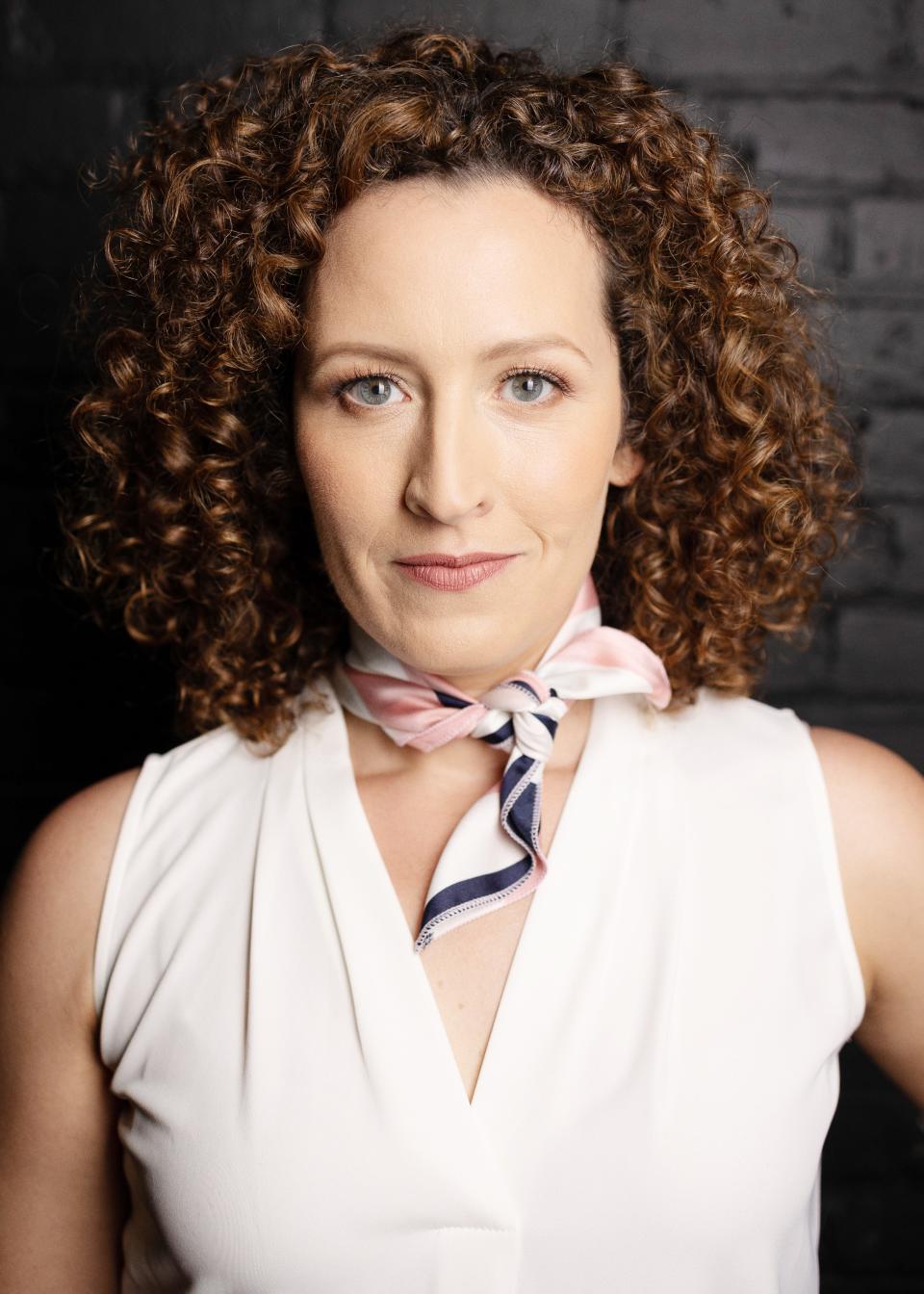
When a work is brand new, however, there's a frontier.
"The hope is that this piece will be done again, even after we finish the production at Indiana University."
Unlike the Anne Frank plays or film
Librettist Kondek said this opera differs greatly from the popular plays (1955 and 1997) and the 1959 film, "The Diary of Anne Frank," which starred Shelley Winters. One reason is IU Jacobs' director, Manich. Five minutes after getting to know Manich, on Zoom, Kondek "knew she was perfect for me. She asked me the right questions. And I asked her questions and she gave me the right answers. I have a friend at the Metropolitan Opera in New York, and he said, 'Charlie, you two are going to get along just fine.'"
"The Broadway version has eight people in it." Kondek didn't want to do it that way. "People would get bored if only eight people were in this opera."
Of course, there was that challenge of getting the Anne Frank Fonds to grant them permission to do it at all. "We had to convince (the keepers of Anne Frank's legacy) that we weren't just a few crazy kids."
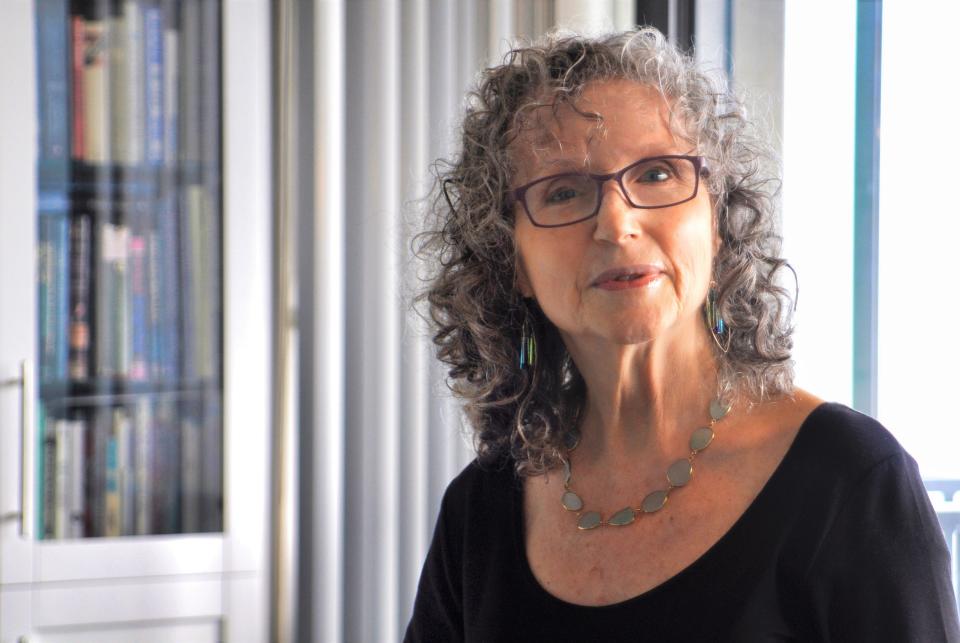
If you go
WHAT: "Anne Frank," a full-length opera, by Indiana University Jacobs School of Music
WHERE: IU Musical Arts Center, 101 N Eagleson Ave.
WHEN: 7:30 p.m. March 3, 4, 9, 10
TICKETS: $10-$35 at https://operaballet.indiana.edu/events/anne-frank.html#tickets
MORE: Events leading up to the world premiere include: A panel discussion, An Exploration of the Opera "Anne Frank," at 2:30 p.m. March 2 in Ford-Crawford Hall on the IU campus, with a reading from "The Diary," as well as speakers, a brief Q&A and a chance to meet Arthur Fagen, Crystal Manich and Shulamit Ran as well as Anne Slovin, who will play the role of Anne Frank. For more, go to https://music.indiana.edu/news-events/anne-frank/index.html
This article originally appeared on The Herald-Times: IU opera performs world premiere 'Anne Frank' in Bloomington

